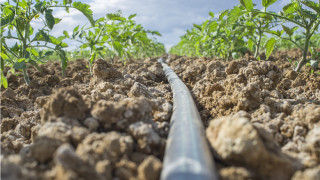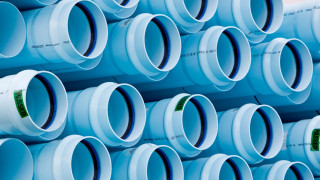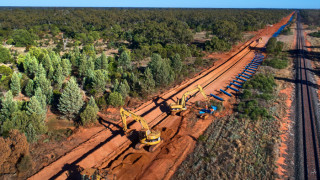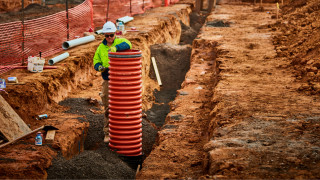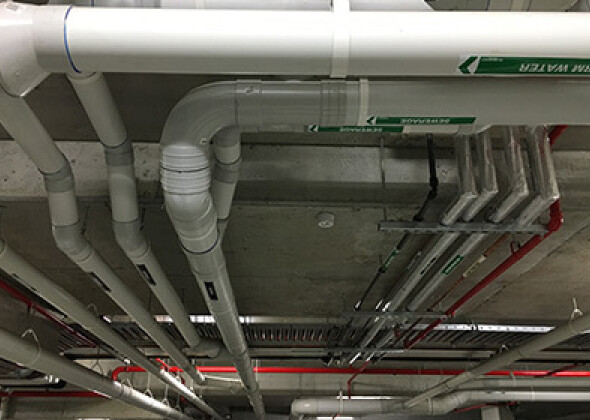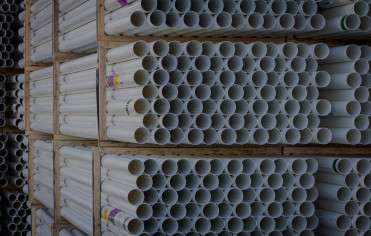Stormwater
Plastic pipe systems offer major advantages over traditional materials for stormwater applications including corrosion resistance, installation economics, operating efficiencies and reductions in maintenance costs. Iplex’s PVC-U stormwater system from DN75 through to DN375 provides a complete pipe and fittings range for stormwater disposal.
Applications
Material Options
Product Details
Handling & Storage
Installation & Testing
FAQ
Case Studies
Applications
Applications
Iplex's PVC-U Non-pressure Stormwater Drainage System can be used above or below ground for rain to run-off from various surfaces such as: roads; roofs and driveways and other natural water bodies such as: creeks; rivers and the sea.
The comprehensive PVC-U stormwater range of pipe and fittings up to 375mm offers a pipeline solution for stormwater applications.
PVC-U Stormwater Technical Guide
Advantages
Advanced plastic pipe systems offer major advantages over traditional materials for stormwater applications.
| Features | Benefits |
| Light weight | Savings on Freight and Handling, due to the light weight of Iplex's PVC-U Stormwater pipes and fittings. |
| High flow rate | Iplex’s PVC-U pipe systems have an unrivalled hydraulic capacity due to the extremely smooth bore and precision joints. Flatter grades are possible using PVC-U pipe systems. |
| Flammability | PVC-U does not support combustion. |
| Non-conductivity | PVC-U is a non-conductor of electricity, and is therefore not subject to galvanic or electrolytic corrosion. |
| Tree root Intrusion resistance | Properly made solvent weld joints have been shown to have excellent resistance to the tree root intrusions that cause blockages and infiltration in other systems. |
| Fittings range | The Iplex PVC-U stormwater system contains a complete range of adaptors to enable connection to a wide range of downpipes and other pipe systems. |
| Low installation cost | The light weight of Iplex Stormwater pipes together with longer pipe lengths flexibility and the use of narrow trench widths significantly reduces installation costs, the major portion of the total in-situ costs. |
Material Options
Material Options
Mechanical Properties
The mechanical properties are for PVC-U at 20°C
| Property | Value & Unit |
| Density (Specific Gravity) | 1.47 |
| Ultimate tensile strength | 52MPa |
| Yield Strain | 5.50% |
| Compressive strength | 66MPa |
| Tensile Modulus | 2750MPa |
| Hardness Shore D | 85 |
| Poissons Ratio | 0.38 |
| Ring Bending Modulus - 3 min | 3200MPa |
| Ring Bending Modulus - 50 yrs | 1400Mpa |
Thermal Properties
| Property | Value & Unit |
| Coefficient of Thermal Expansion | 7 x 105/°C |
| Thermal Conductivity | 0.138W/m.K |
| Specific Heat | 1047 J/kg/°C |
| Vicat Softening Temperature | 75°C |
Typical Fire Resistance Properties
| Property | Value & Unit |
| Flammability | Will not support combustion |
| Fire Index - Ignitability | 8 |
| Fire Index - Smoke Developed | 8 |
| Fire Index - Spread of Flame | 0 |
| Fire Index - Heat Evolved | 1 |
Chemical Resistance
PVC-U pipes have high resistance to a wide range of chemical reagents. Such resistance, however, is a function of temperature, concentration and pressure.
In general, PVC-U is suitable to convey strong acids, alkalis and aqueous solutions (except those which are strongly oxidising), aliphatic hydrocarbons, fluorides, photographic and plating solutions, brine, mineral oils, fats and alcohols. The suitability of a pipeline for conveying a certain chemical will depend on such factors as the concentration of the chemical in the fluid to be conveyed, temperature, flow rate, the presence of pockets or “dead spots” in the pipeline and other factors.
Product Details
Product Details
Standards and Approvals
Iplex PVC-U pipe is manufactured to the Australian Product Standard under a third party accredited Quality Management System (QMS) with ISO 9001.
PVC-U non-pressure stormwater pipes has ISO Type 5 third-party StandardsMark certification, licence numbers: SMK in accordance with Australia/New Zealand Standard AS/NZS 1254 “Unplasticised PVC (PVC-U) Pipes and Fittings for Stormwater or Surface Water Application.”
Iplex PVC-U stormwater pipe and fittings contain no lead stabiliser.
Colour and Markings
Some Iplex stormwater pipe and fittings contain a percentage of recycled material when manufactured, consequently colour can vary, however, most pipe manufactured is white in colour. Stormwater pipe and fittings contain a UV absorber (Tio2) and can be installed in direct sunlight.
Iplex stormwater pipe is branded in accordance with AS/NZS 1254, which includes the date and place of manufacture.
Environmental Credentials
Iplex PVC-U non-pressure stormwater pipe is certified to confirm to the Best Environmental Practice PVC (BEP PVC) provisions of AS/NZS 1260.
The Green Building Council of Australia (GCBA) has defined the standards for best practice environmental performance for PVC manufacturing, against which Iplex’s processes have been audited by an independent certifying body. These permit users of Iplex PVC-U non-pressures pipes to claim positive PVC Credit Points under the GBCA’s Green Star Rating Scheme Learn More.
Iplex Pipelines have published verified Environmental Product Declaration (EPD) on our range of PVC-U non-pressure Pipes. EPD’s are third party certified documents based on ISO 14025 and EN 15804 Standards that communicate transparent and comparable information about the life-cycle environmental impact of a product or service. Specifically, product declarations include information on the environmental impact of raw material acquisition, energy use and efficiency, composition of materials and chemical substances, emissions to air, soil and water and waste generation.
Stormwater PVC-U Non-pressure Pipe Range and Dimensions
Stormwater PVC-U Non-pressure Pipe Range Size and Dimensions
|
PRODUCT CODE |
TYPICAL DIMENSIONS |
||||
|
DN NOMINAL SIZE (mm) |
RATING |
Dim. (m) L |
Min. mean outside dia (mm) L1 |
Typical wall thickness min. (mm) L2 |
|
|
WPSO75 |
75 |
SN2 |
6 |
75.0 |
1.6 |
|
WPSO90 |
90 |
SN2 |
6 |
90.0 |
1.9 |
|
WPSO90EH |
90 |
SN4 |
6 |
90.0 |
2.5 |
| WPSO90EHJAZZ |
90 |
SN4 |
6 |
90.0 |
2.5 |
|
WPSO150 |
150 |
SN2 |
6 |
160.0 |
3.2 |
|
WPSO225 |
250 |
SN2 |
6 |
250.0 |
5.5 |
|
WPSO300 |
300 |
SN2 |
6 |
315.0 |
6.0 |
|
WPSO375 |
375 |
SN2 |
6 |
400.0 |
7.9 |
Slotted Stormwater Pipe Range Size and Dimensions
|
PRODUCT CODE |
TYPICAL DIMENSIONS |
||||
|
DN NOMINAL SIZE (mm) |
Dim. (m) L |
Min. mean outside dia (mm) L1 |
Max. mean outside dia (mm) L1 |
Typical wall thickness min. (mm) L2 |
|
|
WPSO90SL |
90 |
6 |
90.0 |
90.3 |
1.9 |
|
WPSO150SL |
150 |
6 |
160.0 |
160.5 |
3.2 |
Stormwater Plain Bend F&F:
|
PRODUCT CODE |
TYPICAL DIMENSIONS |
||||
|
NOMINAL SIZE (mm) |
Angle (deg) a |
Dim. (mm) L |
Dim (mm) L1 |
Dim. (mm) L2 |
|
|
W0027522 |
75 |
22 ½ |
47 |
35 |
75 |
|
W0027545 |
75 |
45° |
51 |
30 |
75 |
|
W0027590 |
75 |
90° |
57 |
20 |
75 |
|
W0029015 |
90 |
15° |
37 |
28 |
90 |
|
W0029022 |
90 |
22 1/2° |
40 |
28 |
90 |
|
W0029045 |
90 |
45° |
49 |
28 |
90 |
|
W0029090 |
90 |
90° |
75 |
28 |
90 |
|
W00215015 |
150 |
15° |
82 |
64 |
160 |
|
W00215045 |
150 |
45° |
105 |
64 |
160 |
|
W00215090 |
150 |
90° |
153 |
64 |
160 |
|
W00222590 |
225 |
90° |
183 |
100 |
225 |
|
W00230045 |
300 |
45° |
227 |
125 |
300 |
|
W00230090 |
300 |
90° |
231 |
125 |
300 |
|
W00237545 |
375 |
45° |
297 |
160 |
375 |
|
W00237590 |
375 |
90° |
294 |
160 |
375 |
For detailed dimension of PVC stormwater pipes and fittings, refer to page 15-28 of the PVC stormwater technical guide.
Handling & Storage
Handling & Storage
Installation & Testing
Installation & Testing
FAQ
Frequently Asked Questions
Case Studies
Other PVC Non Pressure products you may like…
Need help?
To speak with an Iplex sales & service team member
